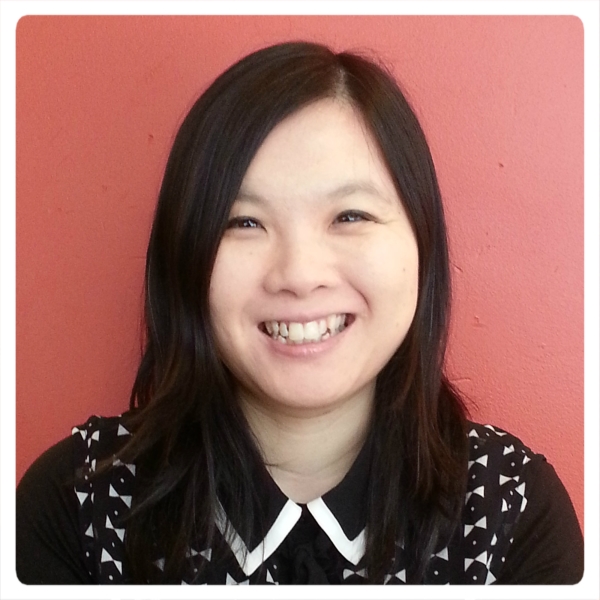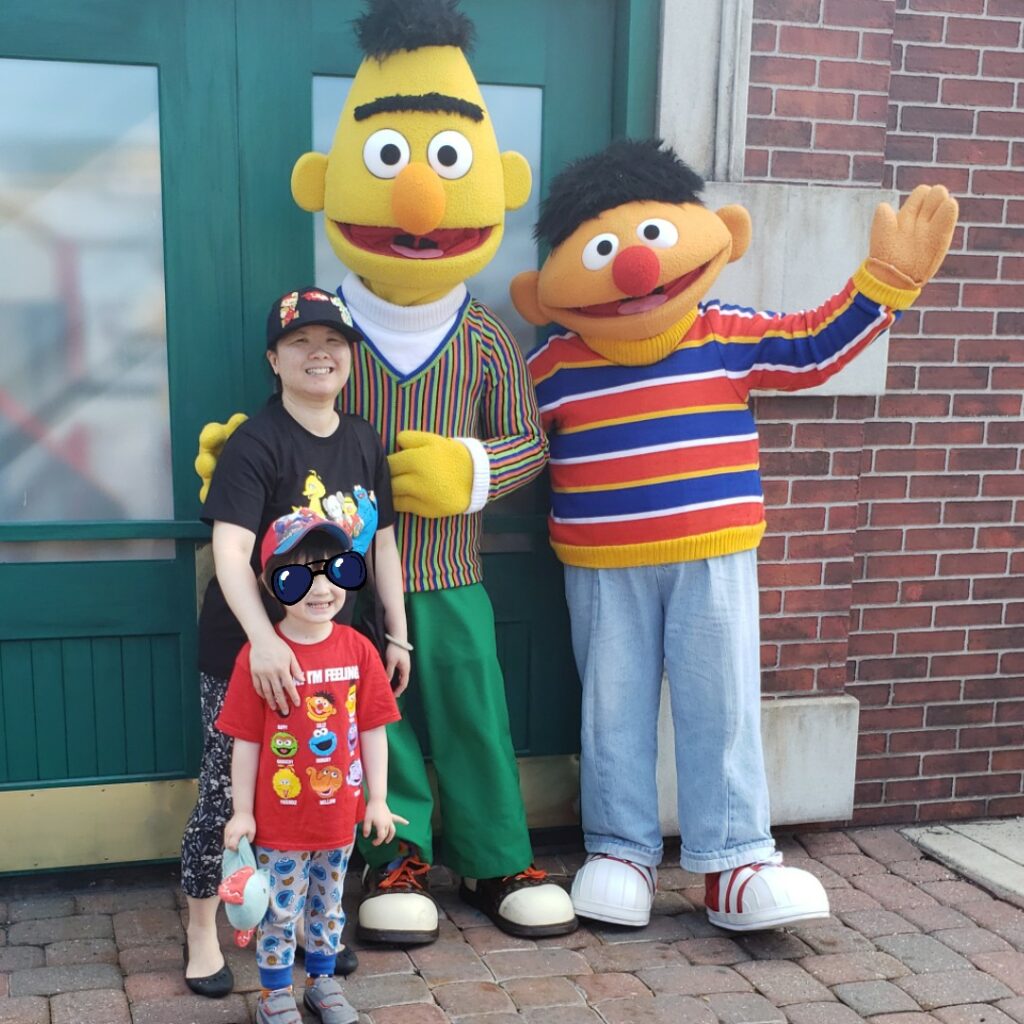I’m on the phone. I’ve gone quiet. Listening intently, I’m not sure what to say. I don’t want to interject. The interview has taken an unexpected turn and the many questions I have written down, on several pieces of paper in front of me, seem insignificant and inappropriate.
When creating these Profiles my process is to reflect on the person I’m writing about, thinking ahead of how I might begin, while I send an email asking for basic biographical detail, where the person was born, went to school, career choices etc. After I receive the information, I continue to reflect, allowing the biographical details to shape further questions, and I set up an interview with the person I’m writing about, usually on the phone but sometimes in person.

This time I’m on the phone with Jeannie Fong Garrard, JF Garrard — a person I’ve come to know in the last year and absolutely fallen in love with — her dry humour, her countless stories, her boundless energy. When I’d set up the phone interview with Jeannie, I already had in mind the lede for her Profile — remembering a late evening last May, after a Canadian Authors – Toronto movie night and pub, walking Jeannie home along Dundas Street West (she lives near the Art Gallery of Ontario), before I dropped down to Queen Street to catch the last set at The Rex. All I did along that walk was laugh as she recounted family stories, her Asian heritage, conflict of culture having been born in Canada, her “Tiger Mom”. I knew I would begin this Profile with the humour, the laughter.
But I’m not laughing on the phone. Jeannie is telling me about her attempted suicide when she was in grade nine. She is telling me about her life-long battle with depression. She has opened up, speaking matter-of-factly. I’m so caught-off-guard I’m not sure how to respond, which is probably best, that way I don’t talk, I listen.
What I heard was Jeannie talking about depression being with her most of her life, the first feelings of depression going back to when she was four or five years old. She described it as feeling like a blanket covered her all the time. As she got a bit older she thought, “why deal with all of this” and wanted to stay in bed. When I did ask a few questions about this time in her life, Jeannie reflected on two aspects. One, the idea of a certain burden of being smart. The moment she said that, she immediately called herself out for the remark, thinking it sounding arrogant, egotistical. Nothing of the sort — Jeannie is highly intelligent. She explained that she found herself as a young person very much engaged in self-examination. Jeannie always contemplated the notion of her depression, even as a child, and when she was a bit older she discovered her mother’s employee benefit package, read through it, and saw that counselling services were available. When she approached her mother about taking advantage of counselling the discussion did not go well.
That led to the second aspect that Jeannie shared, the conflict, the culture clash in her Asian family, at least, of dealing with depression. The fear of being stigmatized, of being judged by others, eventually leading to no one wanting to hire you. Her grandmother had no sympathy for Jeannie’s first bouts of depression when she was very little and would not engage a discussion around the reason Jeannie wanted to stay in bed. Her grandmother simply told her it was a privilege to go to school and hauled her out of bed. Later, when Jeannie attempted suicide during her first year of high school, it was her grandmother who caught her in the bathroom in the act of cutting her wrists. Her grandmother’s response was to slap her across the face.
After her father died a few years ago, Jeannie finally reached out for counselling, finding treatment at CAMH (Centre for Addiction and Mental Health) as part of new research on Cognitive Behaviour Therapy. The talk therapy helped as did the advice that doctors were seeing great improvement in depressed patients who regularly exercised; Jeannie became a runner. The causes of depression are many and Jeannie acknowledged that both genetics and environmental stresses have undoubtedly played roles. During our discussion she talked about both her father and grandfather having been depressed. And the sense of stress in her upbringing, the burden of too much demanded, straight A’s not good enough if you weren’t at the top of your class, the piano lessons, the Chinese school on weekends.
Thankfully Jeannie did make it through her life to get to the point of therapy and exercise and an overall commitment to good health, both mental and physical. Despite all the struggles, the ups and downs, she has not just survived, she has flourished. Although she didn’t fulfill the family desire to become a doctor (she attended the University of Waterloo for pre-optometry), she did graduate from the University of Toronto in nuclear medicine. She worked at CAMH before seeking treatment there, conducting experiments on people, using positron emission tomography (PET) brain scans to test upcoming meds or techniques to treat postpartum depression, Alzheimer’s, and a variety of other mental health issues. That’s also when she began doing her MBA at York University, part-time. That’s the side of Jeannie I have seen since I’ve gotten to know her over the last year, the woman of tremendous energy and accomplishments. Taking everything into account, I can’t but think she is one of the most complex, multi-layered people I’ve ever known.
Complex is a word that Jeannie used to describe her relationship to both her family and her Asian culture. Despite Jeannie’s struggle with the “Tiger Mom” aspect, she acknowledged her mother’s love and support, which in its own way led to Jeannie’s writing. Her mother wanted to ensure Jeannie’s English always improved and she encouraged her to read. In Grade 5, Jeannie discovered a love for horror and her mother unquestionably bought any books requested. Jeannie now laughs at the reality her mother had no idea about the content of the books nor the inappropriateness of a child in middle school reading Clive Baker, Anne Rice and Stephen King. But those books started her down a path to being a writer, in adulthood, of horror, fantasy and speculative fiction.
The Undead Sorceress, published in 2014, is Jeannie’s first novel and here’s the opening paragraph of her synopsis: “Ever since Tamara became a vampire, things have gone downhill. Her grandmother runs off with her daughter’s soul and her husband thinks she is going crazy. Caught in the middle of a war between vampires, sorceresses and warlocks, she discovers an alternative history to the world she thought she knew.” I mean, if you are a fan of the genre how do you not immediately buy that book! Go ahead, order it now, I’ll wait….Are you back? Ok, I’ll continue.

Jeannie’s website is titled Musings of a Generic Asian. When I asked her about the title she said that when she was travelling in Asia it seemed no matter what country she was in other Asians took her origins as other than Chinese — they assumed she was, for example, Korean or Japanese. So, in her absolute love of humour, she embraced the role and began referring to herself as a generic Asian. If you go to her website you’ll also see, on the home page, this quote by Robin Williams: “You’re only given a little spark of madness. You mustn’t lose it.” So much to unpack with that quote, isn’t there. Hhhmmm?
Whatever complexities race has brought to Jeannie, it has never caused her to separate from her heritage, not in the least. She embraces her heritage and all the complexities it brings to her life. After she finished her first novel, the founder of Rice Paper Magazine, Jim Wong-Chu, invited her to the Asian Literature Conference in BC. From there, Jeannie became heavily involved, including a role as the only Deputy Editor of the magazine in Toronto (everyone else is in Vancouver). She’s also written reviews and interviewed stars during the Asian Reel Film Festival. After Jeannie provided insight into Jim Wong-Chu, who is now deceased, I looked him up. Sounds like an amazing individual and while I don’t have the space to expand, I invite you to read about him, and the rich history of Asian-Canadian writing, starting here.
I’ll leave some of the madness to Jeannie’s choice of genre, all that demented horror and lovely mayhem, and take the rest to comedy, the necessity of laughter when faced with the madness of the world. She’d love to do stand-up and has contemplated signing up for the comedy classes offered by Second City. When I asked her if she was always funny she said that she enjoyed it early in life, trying to be funny, but racist shit, actual physical beatings in elementary school, drove her to be more introverted, becoming the “generic nerd”. Later, in high school, she allowed her personality to emerge again, and her humour found voice in an interesting twist on race. Jeannie went to Catholic School and most of the other Chinese kids who attended were from Hong Kong, rich kids whose parents were back home, and they indulged their freedom by drinking and driving fancy cars. When Jeannie befriended a black girl, she was ostracized by those Chinese students, which loaded Jeannie up with a shit-load of comedy material. Racism — madness — there’s a connection there too, I think.
In order to publish The Undead Sorceress, Jeannie created a Crowd Funding campaign to start her own publishing company, Dark Helix Press. Her endeavours since that time, whether writing, publishing, editing or putting together anthologies are significant — if you haven’t read my profile of the women, including Jeannie, who reinvigorated Authors-Toronto, go back and look at the breathless list I included regarding Jeannie. However, I want to leave you with this insight to Jeannie that cracks me up. Earlier in this Profile I told you about how she has come to understand the importance of exercise to her mental, as well as physical, health. But Jeannie didn’t start running because of a therapist’s recommendation, no no no. Jeannie started to run because she wanted to buy a car. How the hell do you start running by buying a car? Well, in Jeannie’s world it works like this (I’ll leave it to her to explain in her own words):

“The moment for running happened like this — I was about to make a car purchase (the most expensive thing I’ve ever bought in my life) and decided to ask the dealer about this ‘athlete rebate program’ from Subaru. ‘Oh, that’s for athletes!’ he said dismissively, ‘sign your name here and the car will be yours!’ ‘But I know friends that run!’ I sputtered. The salesperson rolled his eyes, ‘Well, contact the website, we’re a dealer, I don’t know anyone who’s done it’. Subaru is a brand known for encouraging drivers to become rugged wilderness adventurers and there are rebates available for athletes, ski instructors, golfers, new grads and people needing to modify cars for disabled passengers. The only category applicable to me is the athlete rebate, aka, someone willing to do either a triathlon or run two 5K races. (Incidentally, I was conversing with author Vincent Ternida about this and I was the third Asian person he knew who was running for this rebate…sigh…). Regardless, I hate it when people say I can’t do something so I ended up running two Subaru sponsored races to qualify for this rebate of $750.”
That’s Jeannie — JF Garrard. Living the busiest life imaginable, marriage, child, full time job, publishing, editing, writing, volunteering, battling life-long depression and when faced with a $750 rebate, deciding on the spot to become a runner, while at the same time making fun of herself, her heritage, by thinking only Asian-Canadians take up running to get a car rebate. I hope Jeannie finds time to take that comedy class — I’d love to see her on stage, riffing on all the fantasy-horror she reads and writes about, fiction and life measured in humour, the laughter engulfing everyone, any sadness swatted away one chuckle at a time. Jeannie celebrating her own spark of madness that is anything but generic.
The next Profile is of Hunter Payne, a fellow my wife and I have been privileged to befriend in Santa Monica, California. If you want to understand a little about Hunter before I publish his Profile, follow this Aid Still Required link to read about the charity he created after the 2004 Boxing Day Tsunami.
I hope you come back.